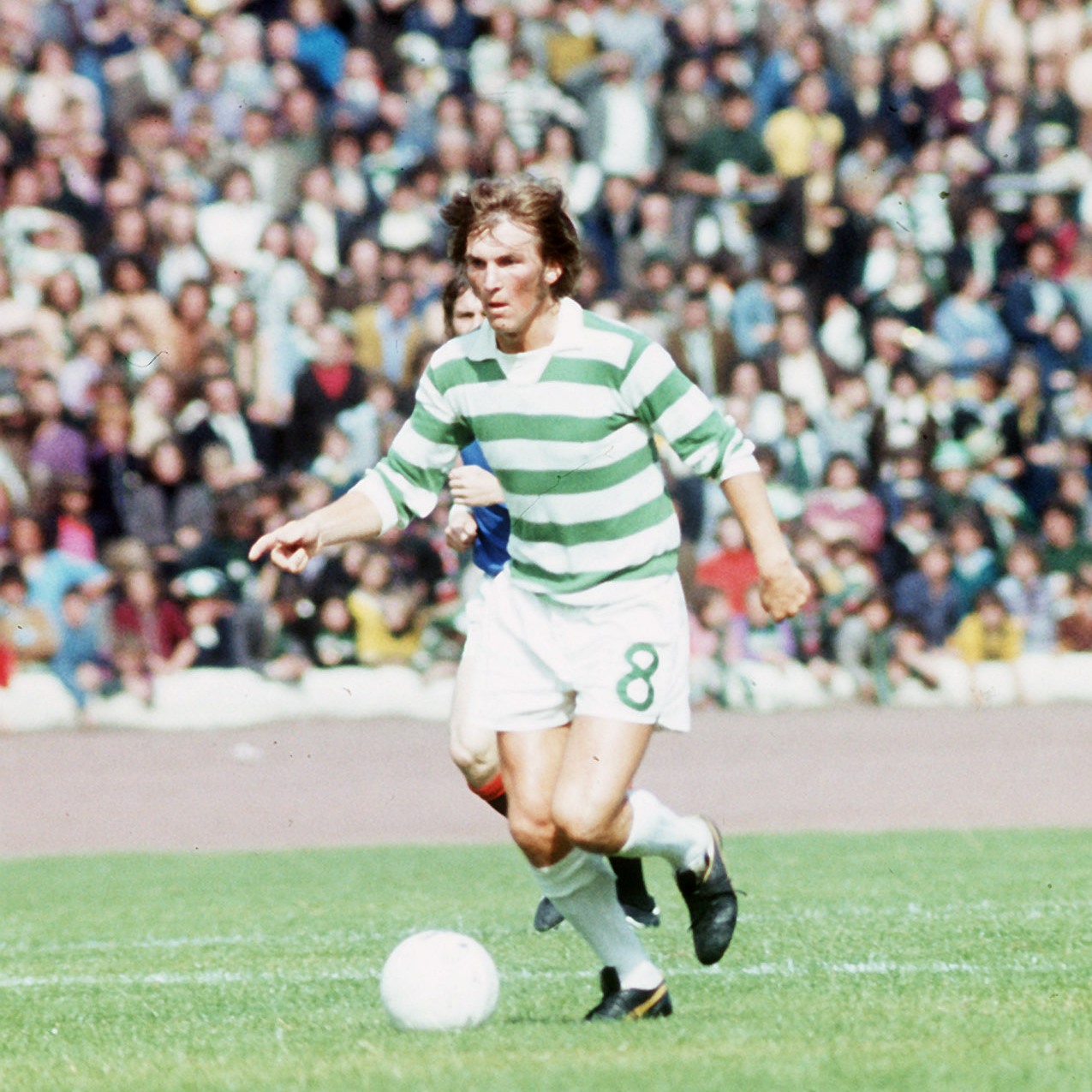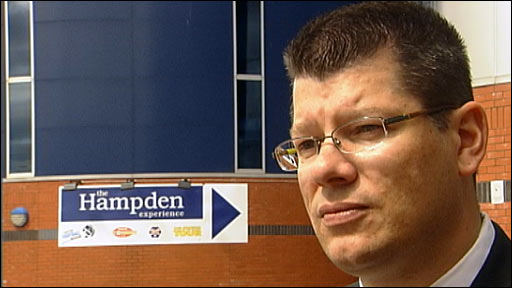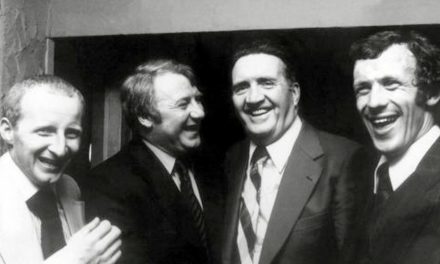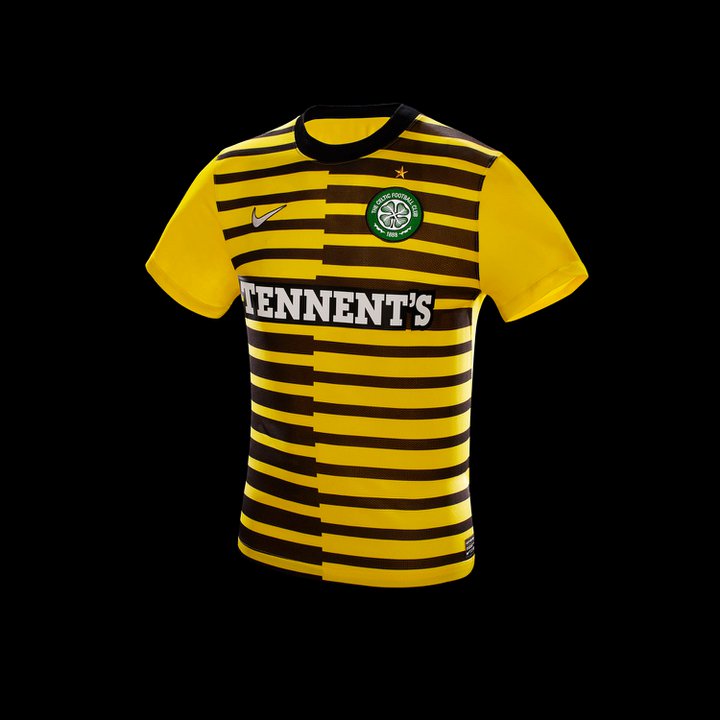Stephen Murray, author of the book Kenny of the Celtic, looks back on Kenny Dalglish’s departure from Celtic to Liverpool on the 40th anniversary of the transfer in August 1977.
Picture the scene: A dark morning in August 1977 and an eleven year old boy is fast asleep. His father wakes him and brings him through to the living room to see the Daily Record front page which regales him with the news that one of his Celtic heroes, Kenny Dalglish, has signed for Liverpool for a British record fee of £440,000. The paper shows Dalglish signing the forms flanked by Bob Paisley and John Smith the Liverpool chairman. The boy, full of disappointment, runs back into his room and tears off the Kenny Dalglish pictures which adorn his wall. That boy was me.
Someone once asked me what was the biggest disappointment I had experienced as a Celtic fan. I can recall losing finals to Partick Thistle and Raith Rovers but I don’t grudge their fans one moment of glory. I can remember some heavy defeats by Rangers but I have seen us inflict just as bad if not worse on them in return. In recent years Seville and Fir Park were big disappointments but I’ve been fortunate enough to appreciate in life that being a Celtic fan brings more joy than sorrow and so it has proved since then. The sudden deaths of Jock Stein, John Doyle and Bobby Murdoch were a severe shock at the time and put football matters firmly into perspective.
In a football context if you cornered me then I would have to admit that Dalglish’s departure was the biggest disappointment, leaving a scar which took a long time to heal and even to this day remains raw. In the late 1980’s there was a cinema advert for a particular brand of Scots whisky (which I can’t recall) which began:
‘Scotland through the ages has lost all it’s national treasures – The Stone of Destiny…Bonnie Prince Charlie…North Sea oil…Kenny Dalglish…’
God I hated that advert. It was clearly an attempt at humour and I squirmed in the cinema seat every time because Scotland didn’t lose Kenny Dalglish, Celtic did. Easily the best player in British football of that era, Celtic fans were given a constant reminder of his loss in the following years as Liverpool blazed a trail across Europe winning everything in sight with Dalglish their brightest talent and that huge distinctive smile of his after he had scored yet another goal. He was a loss alright – a huge loss.
Stephen Kelly tells the story of Dalglish’s departure in his fine biography of the man. Celtic and Liverpool officials had met to discuss the transfer fee and Desmond White was prepared to accept Liverpool’s first offer of £300,000. Jock Stein was horrified and persuaded him to hold out full in the knowledge that Liverpool had £500,000 recently banked from Kevin Keegan’s move to Hamburg. Liverpool continued to up their bid in blocks of £20,000 until they reached £440,000 at which point White over ruled Stein as he was concerned Liverpool would call the deal off (if only). Kelly goes on to explain that Liverpool couldn’t believe their luck and were fully prepared to pay the entire Keegan fee to land Dalglish therefore the sum of £60,000 was lost to Celtic.
In 1977 Celtic could not hope to have replaced him at any price but as it was they never seriously attempted to do so. They could have obtained up and coming young Scots talents such as Sturrock, McGhee or McGarvey but those players were not ready for such a challenge at that stage of their careers. These days Celtic can go to England to sign players or try Eastern Europe, Scandinavia or even the Far East and South American markets. However in 1977 Celtic could only realistically sign players from the Scottish Leagues.
The previous season Ronnie Glavin and Joe Craig had scored 49 goals between them but in season 77/78 after Kenny’s departure they could manage barely over half that figure. Glavin still made the same runs and Craig took up the same positions but without Dalglish there was no supply line in attack.
It took a long time for Celtic fans to forgive him for leaving. In August 1978 he turned out for Liverpool in Stein’s testimonial game and was given a reception described as ‘worse than the Pope could have expected at Ibrox.’ It was not until Liverpool appeared at Parkhead for the Hillsborough benefit game in April 1989 that he was given redemption at last.
He did of course return in a management capacity in 1999 but it is as a player that Kenny will be more fondly remembered. He should have had ‘made at Celtic’ stamped on him because he inherited the passing skill of Murdoch, the guile of Auld and the competitive streak of Wallace and when you put all that together that was some combination. Happily though, he has left us an abundance of memories of his time in the hoops. The coolly taken penalty in his first ever appearance against Rangers at Ibrox, the crashing volley at Tannadice in 1977, the 6-0 win against Dundee at Dens in 1974 when he scored a magnificent hat trick or the 7-2 midweek romp against Ayr United when he lashed home two great goals from outside the area. Anyone who witnessed Kenny Dalglish in a Celtic jersey will have his own favourite recollection from that period.
After reading this article you may think that I still have unresolved issues after all these years and, although writing Kenny of the Celtic has been therapeutic to an extent, you would be absolutely correct to assume that. Because for those who remember him at Celtic, Dalglish was such a great player that his departure is still to be lamented until this day.





